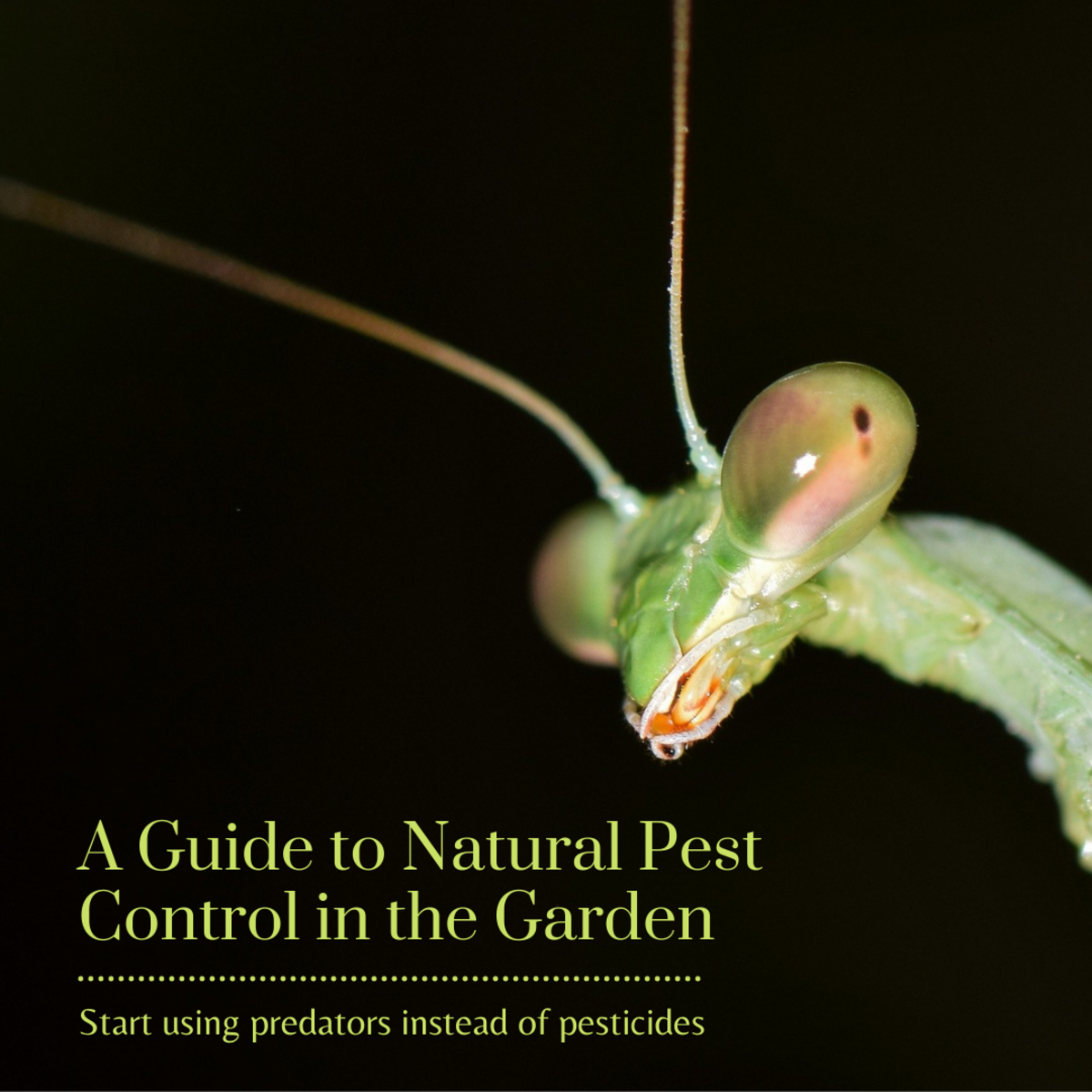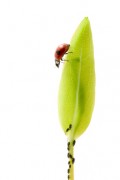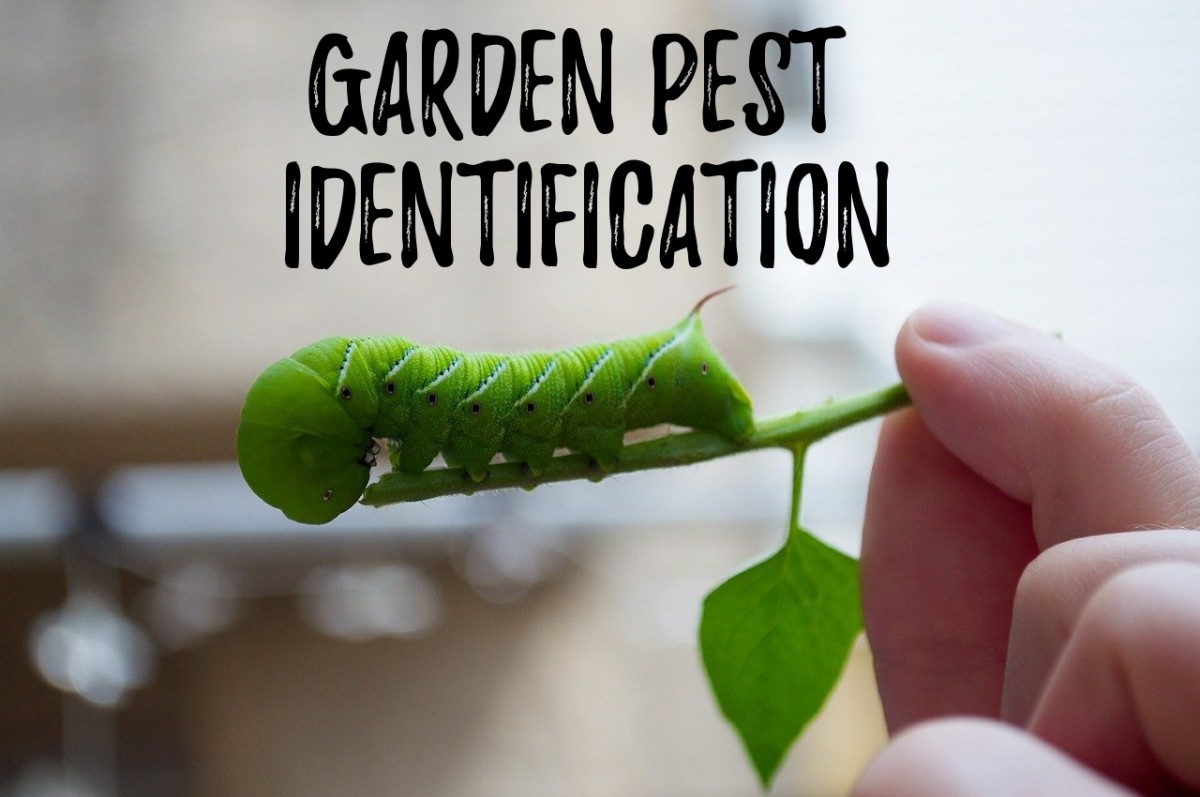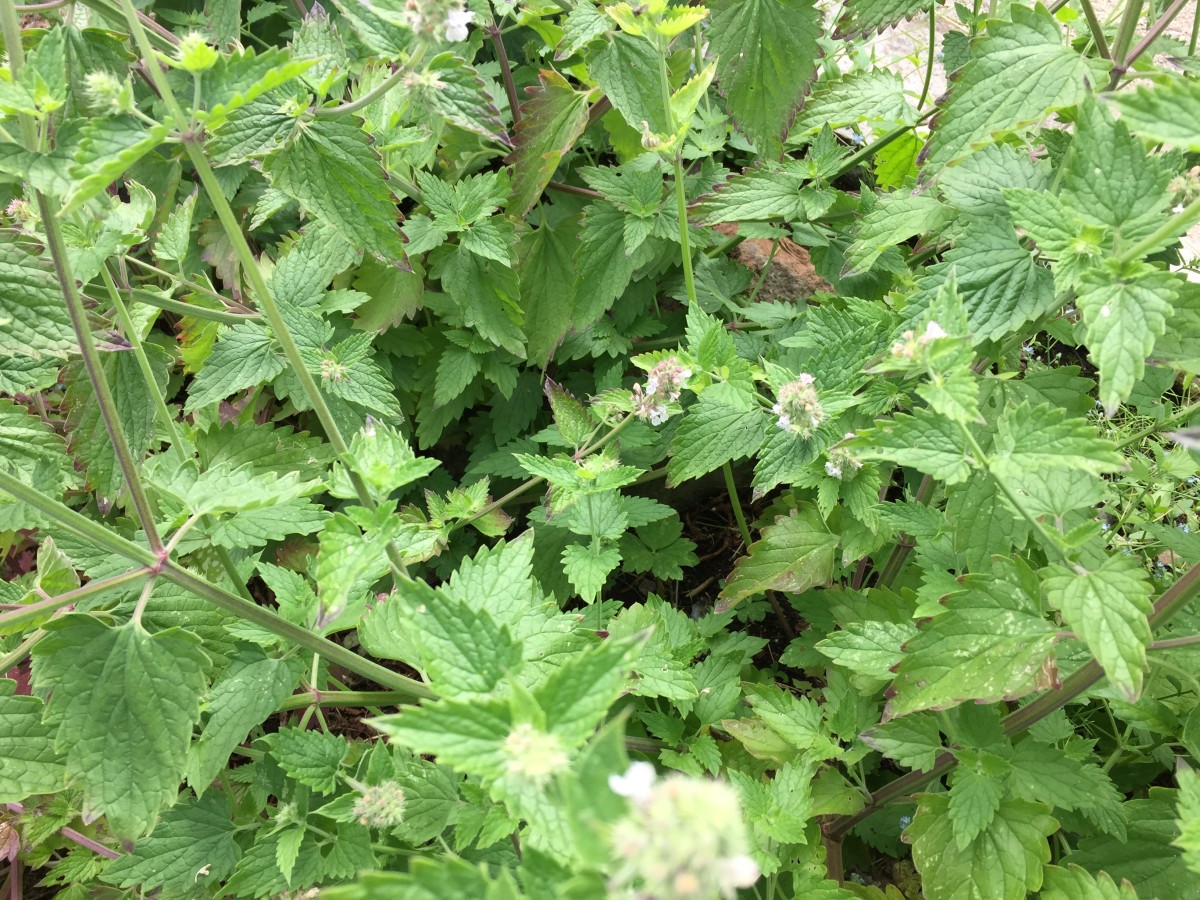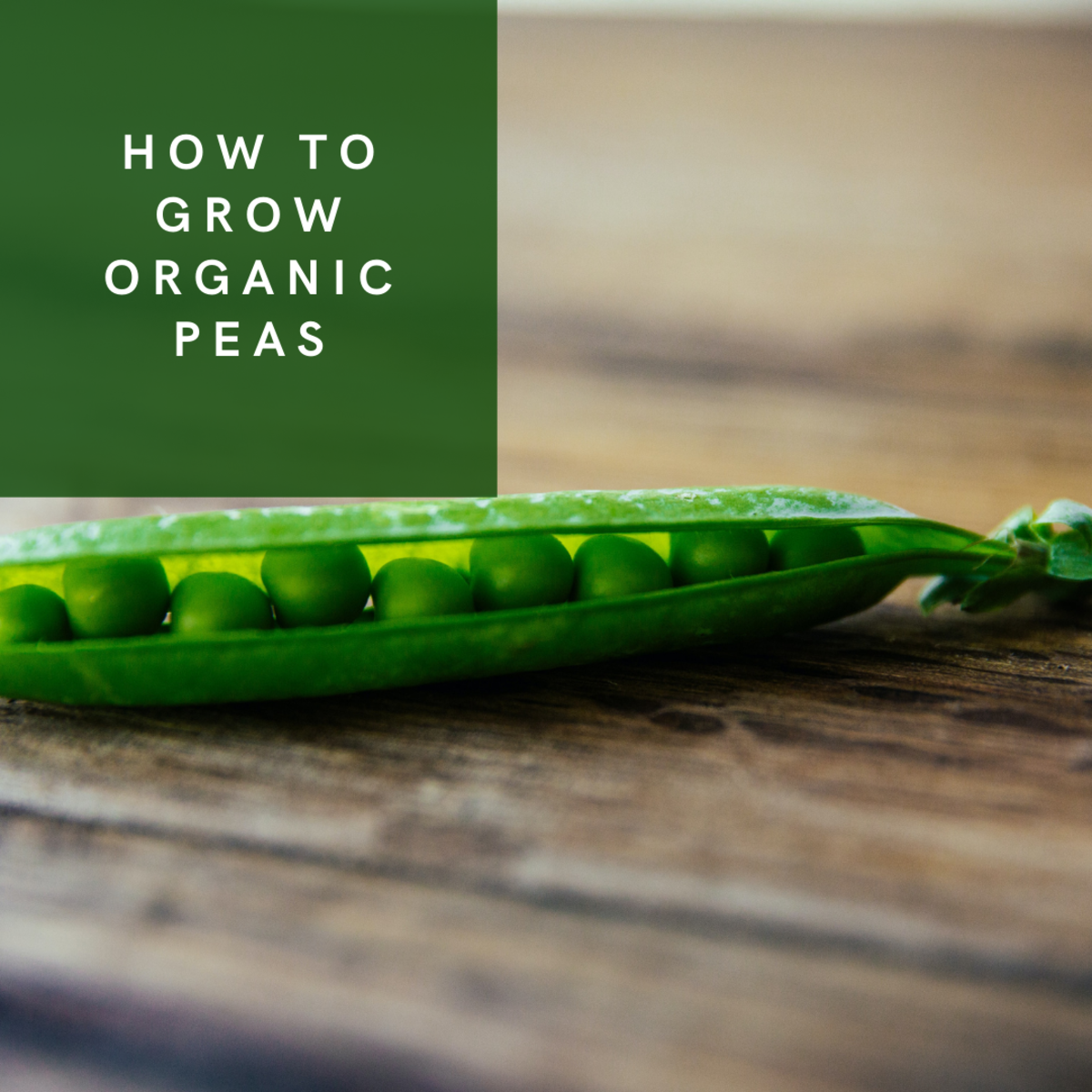- HubPages»
- Home and Garden»
- Gardening»
- Organic Gardening
Natural Insect Control in the Garden

Many of us want to be able to tend to our home, yard and
gardens without the use of toxic pesticides and other dangerous chemicals. Not
to mention the many health benefits that comes from consuming organic fruits
and vegetables. Chemical pesticides tend to not only destroy destructive
insects, but insects that are beneficial to our garden plants. Here are some
ideas for natural insect control for keeping those destructive garden bugs
under control.
Using Garlic, Onion and Pepper as an Organic Insect Repellent
Create a homemade insect repellent made from a finely chopped garlic clove, one finely chopped small onion, and ¼ teaspoon of cayenne pepper or chopped hot pepper pods and blend with one quart of water. Strain the juice from the pulp and use the juice to spray on your plants.
By spraying this solution on and around plants it serves to repel the insects, without killing them. Adding a small amount of dish soap to this mixture is an option that can be utilized just as mentioned in the above lime juice solution option.
Planting garlic and onions around your other plants is also a great way to keep insects away from those plants.
Use your hands as
natural pest control
Using our own hands is the best way to control insects. By using our
hands
(with gloves on of course), we can look for, remove, or crush tiny
insects that
are invading the leaves of garden plants.
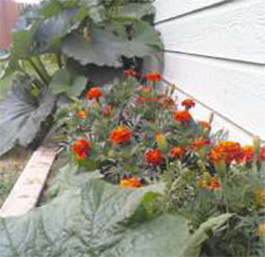
Place Insect Repelling Plants in your Garden
Plants such as Marigolds, Tansy, Sage, Mint, Garlic, Catnip, Basil and
onions,
just to name a few, when planted around your garden and other plants are
well
known for repelling unwanted bugs from your gardens.
“Companion plants” are plants that detract certain types of bugs that may infest another plant. By planting companion plants next to each other, they serve as an organic insect repellent to protect each other. For instance, bush beans are known to be beneficial to potato crops. This information is a lot to go into detail here, but learning about companion planting is well worth it. However, I have found a site with a pretty thorough list, which I have added to this article in the links section, located at the bottom of this page.
To repel mosquitoes, utilize plants such as Citronella/Lemon
grass, Lemon balm, Lavender, Marigolds, Garlic, Basil, Rosemary, and
Tansies.
Use Lime or Lemon Juice as an Organic Pesticide
Create a mixture of ¼ to ½ cup lime juice with one gallon of water and spray the solution onto areas where bug infestations are prominent. This homemade spray will destroy some mites and many smaller insects, and serve as an irritant that will keep the remaining bugs away from sprayed areas. A caution about lime solutions is that it may change the PH levels of the soil when overused and may not be agreeable with all plants.
Adding a small amount of mild liquid dish soap into the mix will make the solution even more potent. To protect your plants, be sure the soap you use is a mild soap, with no perfumes or dyes, and consider hosing the solution off the plants after an hour, which is long enough for the solution to take its effect on the insects.
Keep the valuable insects in your gardens
Ladybugs, ground beetles, lacewings, spiders, centipedes, harvestman,
wasps, and tachinid flies are some of the bugs that are beneficial to have
around your yard, as they serve as an organic pesticide as they feed on other plant destroying insects.
Healthy plants are less likely to become infested
Most often, insects tend to attack plants, fruits and vegetables that are already diseased and weak. Selecting plants that are native to your area and growing them in rich soil is a good form of natural insect control. To keep soils enriched over time, add microbial fertilizers, homemade compost, composted cow manure, green manure and mulches.
Also, be sure to remove or care for plants that are weak, remove fruit that is infested by worms and insects, and remove fruit that has fallen to the ground where more insects tend to gather and breed.
This content is accurate and true to the best of the author’s knowledge and is not meant to substitute for formal and individualized advice from a qualified professional.
© 2010 Mary Roark

